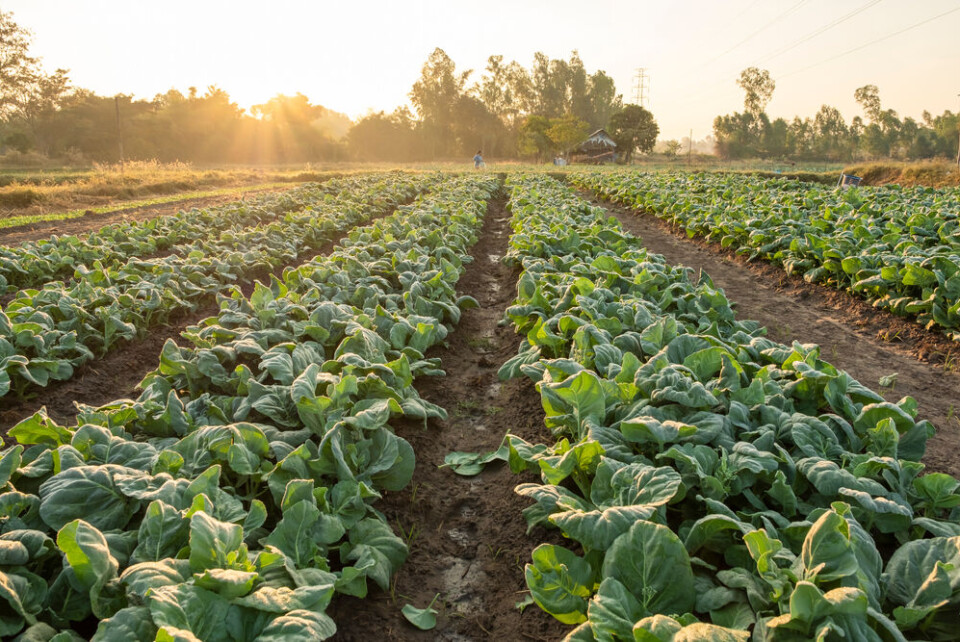-
France’s wild garlic season is here – but foragers should beware toxic lookalikes
Spring brings the fragrant plant to woodlands nationwide. We explain what to look out for
-
Record river levels, more evacuations: Latest on flooding in south-west France
Alerts are in place across five departments and residents in some areas are told to stay home
-
French second-home visa issues raised in House of Lords
British people experience an "expensive and bureaucratic process" to continue living in France
Organic crops in France found to contain herbicide carried in wind
Prosulfocarb has been found in organic harvests in different areas of the country, costing farmers thousands in loss of earnings

The herbicide prosulfocarb has contaminated organic crops in France, in some cases identified as being present at more than100 times the authorised limit.
La Fédération nationale d’agriculture biologique (FNAB) has today called for sales of the herbicide, which is widely-used for cereal and potato crops, to be suspended in France.
This comes as tests run by the group found the herbicide was present in 38% of broccoli, spinach, radishes, roquette and apples that it tested, collected from organic farms in different areas of France.
It found that contamination of organic crops “is not concentrated in one territory, and can occur in a variety of agricultural contexts confirming the idea of a general risk”.
Organic farmers incur huge losses
Once contaminated by chemicals, organic produce cannot be sold.
In Dreux, Eure-et-Loire, farmer Mathilde Siguré spent two years converting to organic farming methods, and this year found her buckwheat crop has been contaminated by prosulfocarb.
“It’s a huge disappointment, and a huge waste,” she told Le Monde.
At the start of 2020, the Biocer farming collective that Ms Siguré belongs to also ran tests showing that the problem is widespread.
It found that two out of three batches were contaminated after testing buckwheat grown from October to December 2020, from 23 organic producers in Normandy, Centre-Val de Loire and Hauts de France.
For over half of producers, the level of contamination was on average 25 times over the authorised limit.
Biocer estimates its farmers have incurred losses of earnings equivalent to €100,000 due to being unable to sell contaminated crops.
FNAB are now calling for an insurance fund to be created for affected farmers financed by Syngenta, the producer of prosulfocarb.
Current rules around use not working
Health body l’Agence nationale de sécurité sanitaire (Anses) describes the herbicide as “very toxic for aquatic life” with “harmful long-term effects”.
Nonetheless, prosulfocarb is the third most used plant protection product in France, after glyphosate (another herbicide) and sulphur (used by organic farmers).
In 2009, fewer than 900 tonnes of prosulfocarb were sold nationally. But in the following ten years usage increased drastically, with almost 4,000 tonnes sold in 2019.
Traces of the herbicide are frequently found in the air in France, with 2.61 nanograms per metre cubed measured in 2019 - the highest of any active substance.
It is thought that this is how it came to contaminate organic crops, as the wind can spread prosulfocarb kilometres away from fields in which it is used.
This is despite national rules around usage that are already in place: prosulfocarb can only be used in certain forms and at certain times, and cannot be used when crops within a 500-metre radius are due to be harvested.
Current rules for the sale and use of prosulfocarb are set to be in place until October 2021.
Related stories
What is meant by the 'écoresponsable' label on French fruit?
West France farms biggest users of controversial weedkiller
Use of pesticides has ‘exploded’ in France in past decade
























